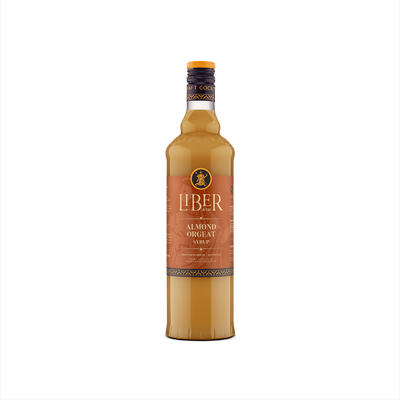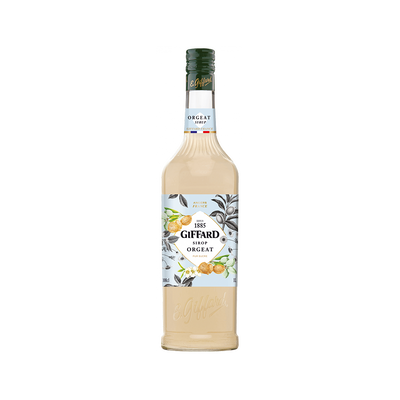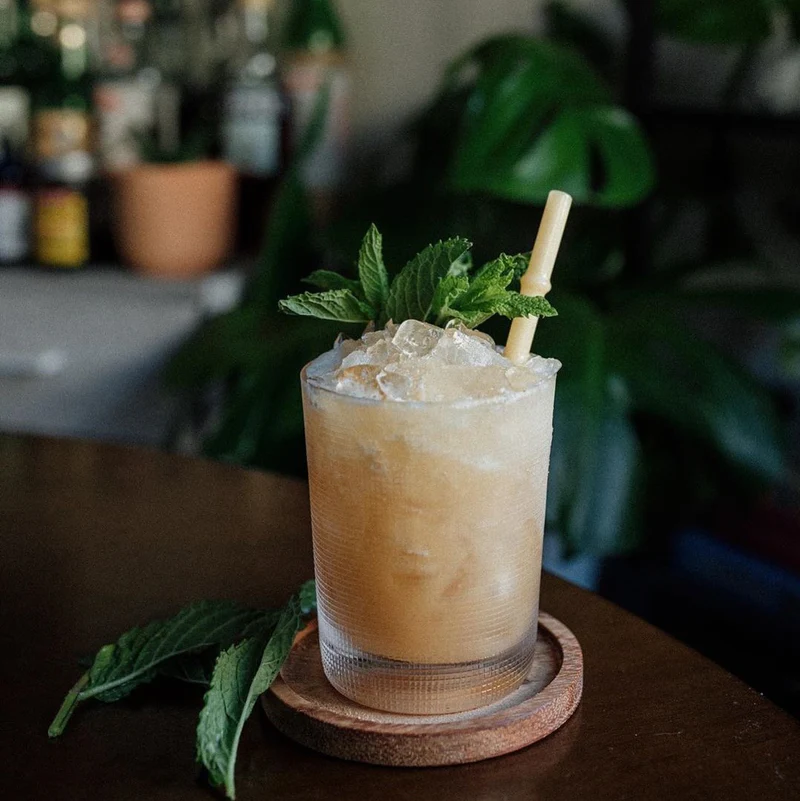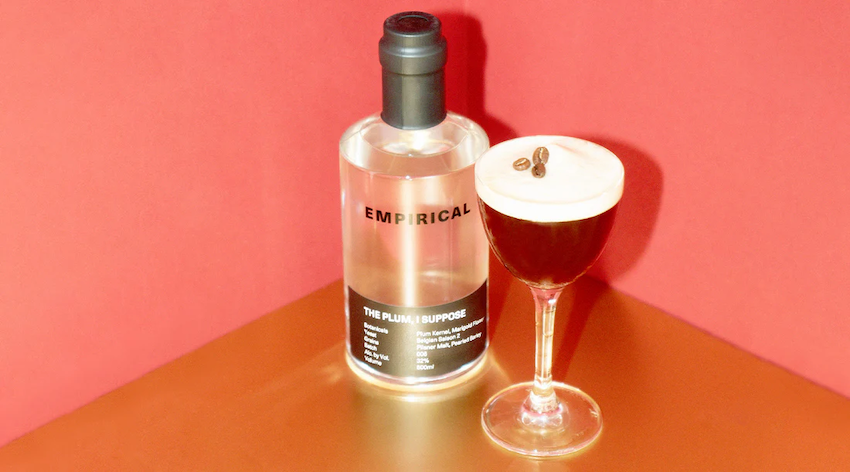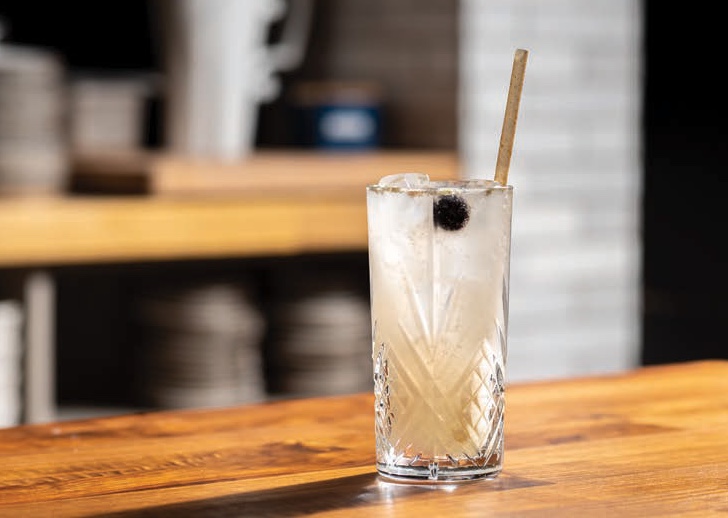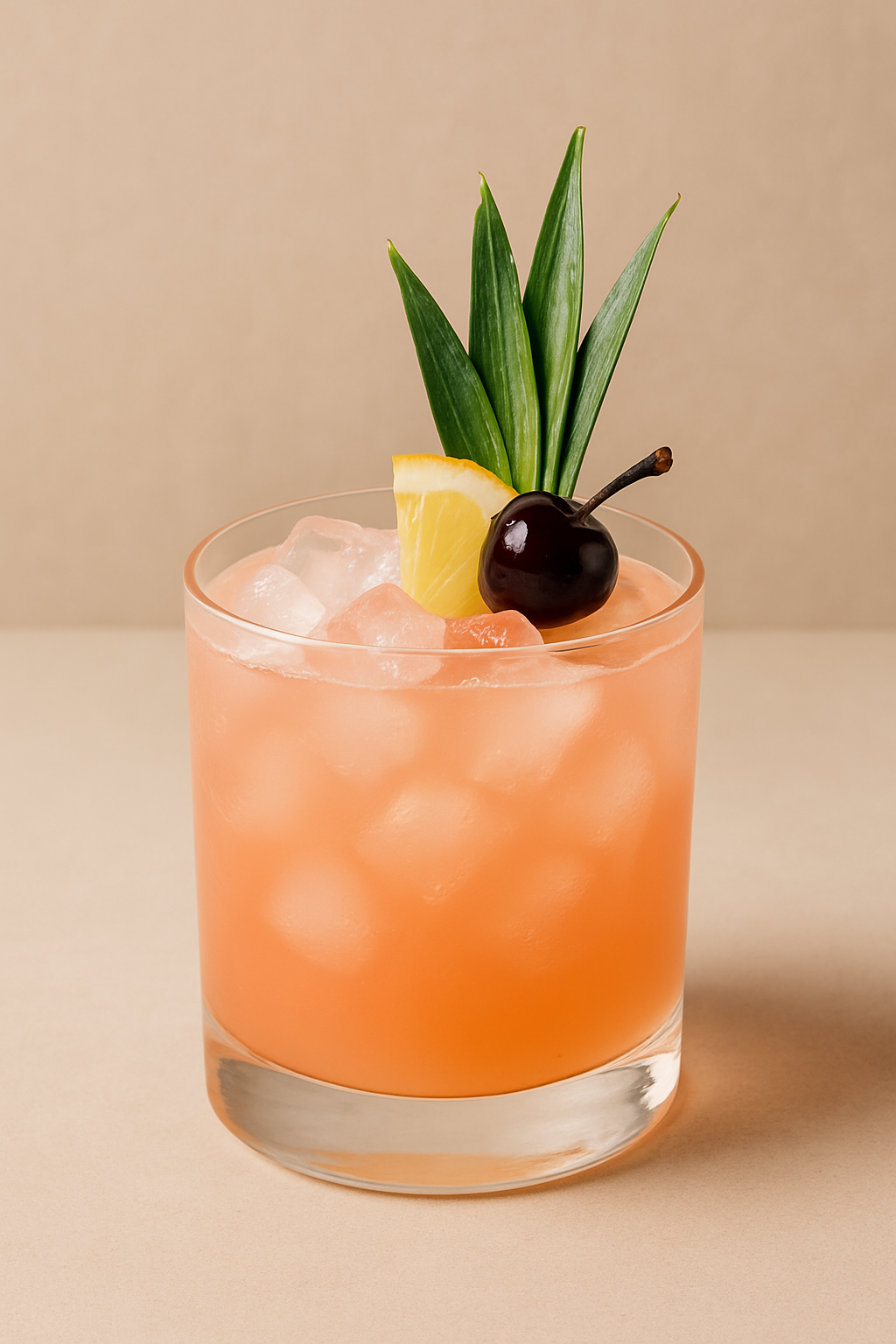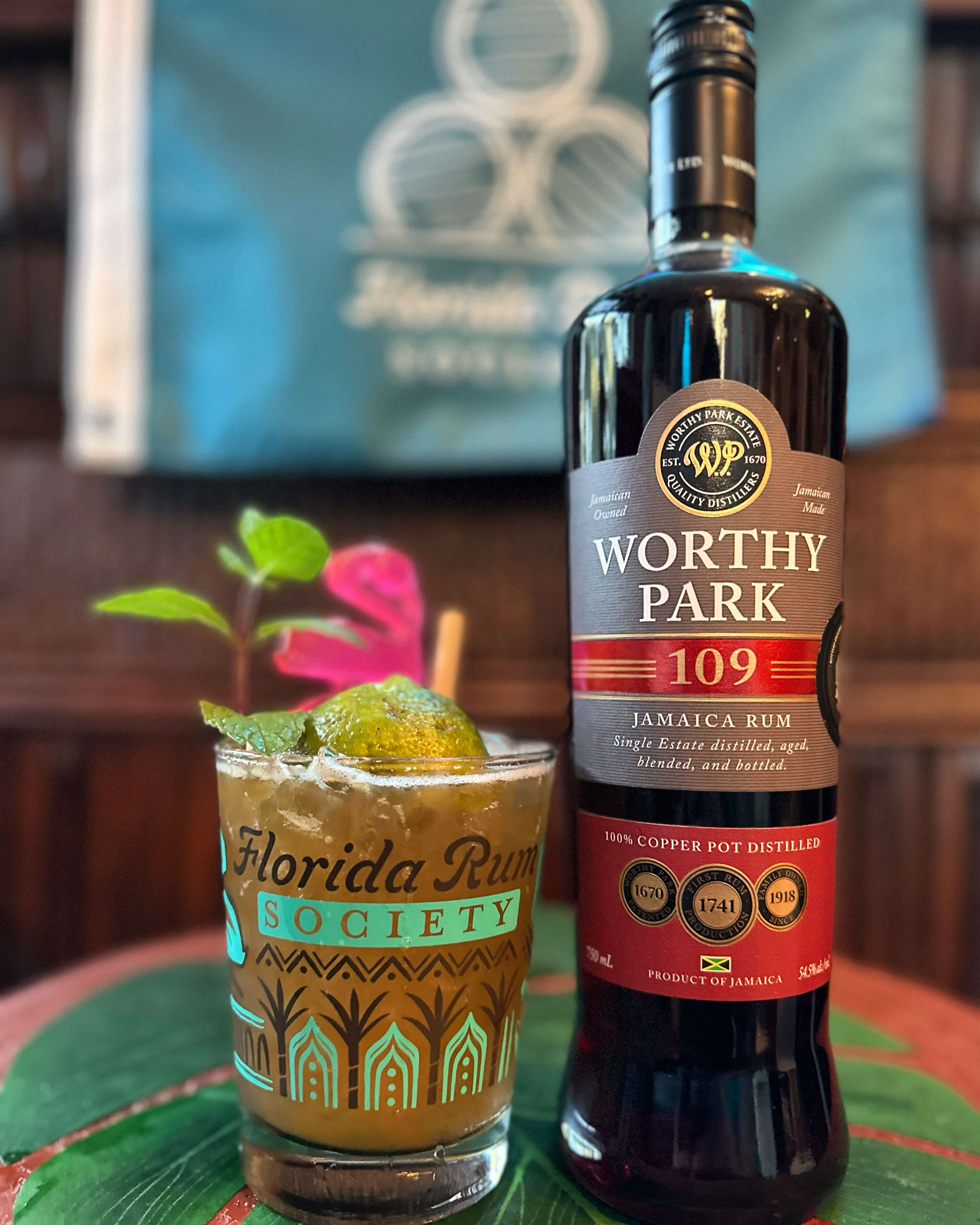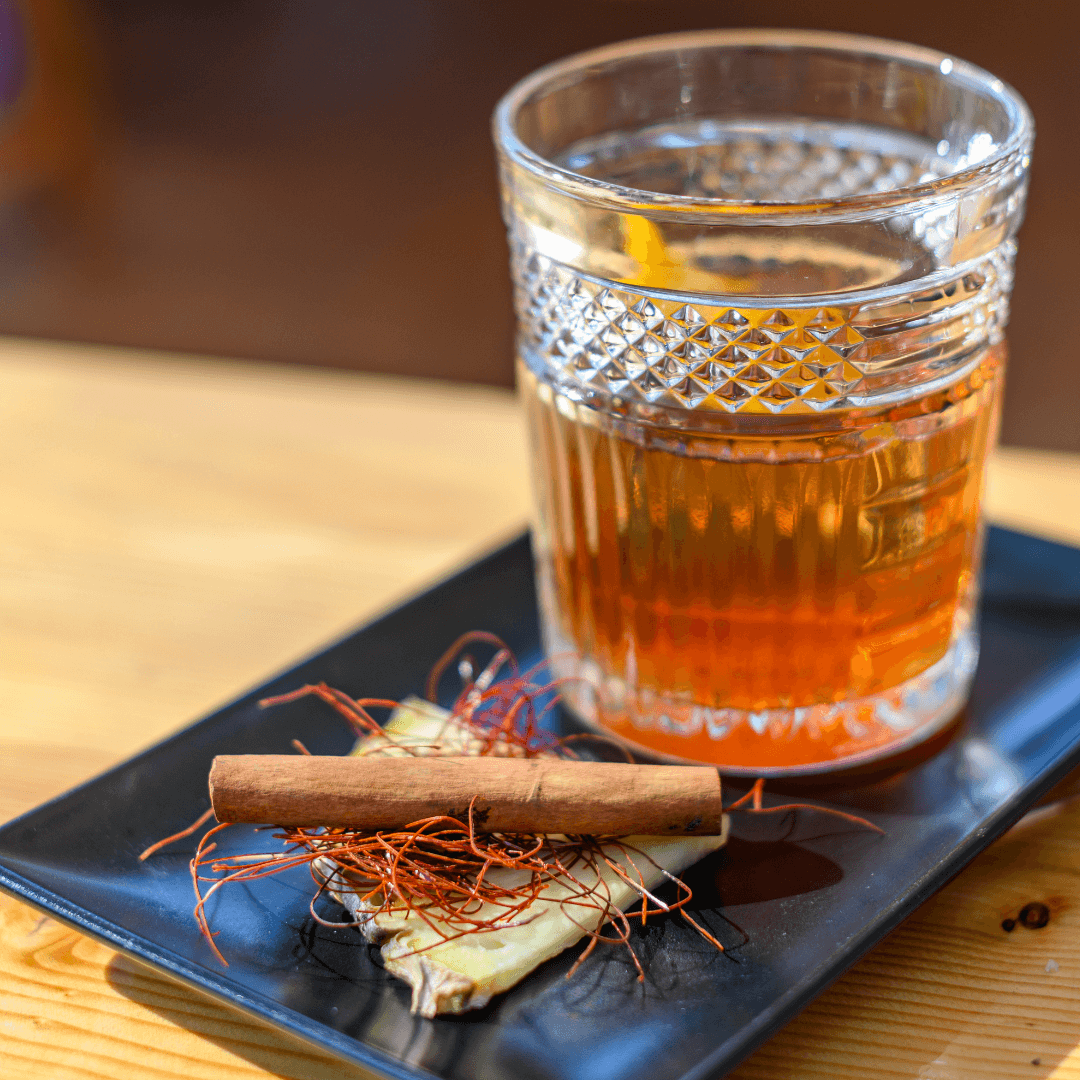
Winter's Traveler Punch
Ingredients:
-
1 oz Goslings Black Seal Dark Rum (or another dark rum)
-
.75 oz Ancho Reyes Barrica Mexican Chile Liqueur
-
.5 oz Chairman’s Reserve Spiced Rum
-
.75 oz Orgeat Syrup
-
.5 oz pineapple juice
Directions:
- Combine all the ingredients in a shaker with ice and shake until chilled.
- Strain into a rocks glass over a single large ice cube.
- Garnish with nutmeg or a slice of pineapple.

